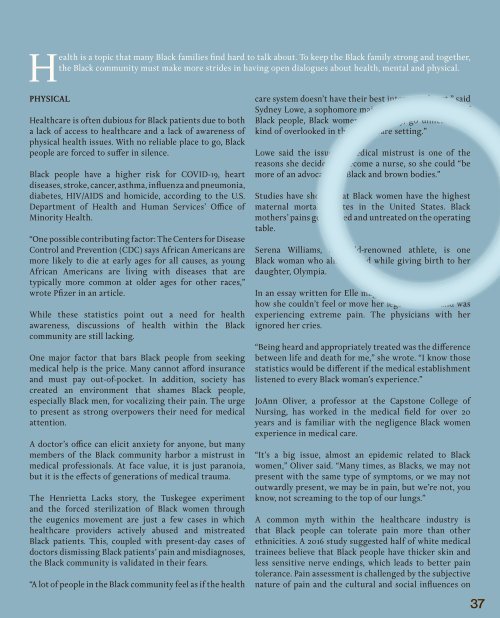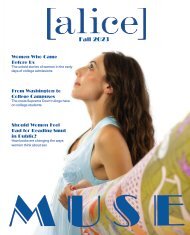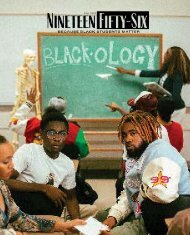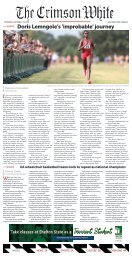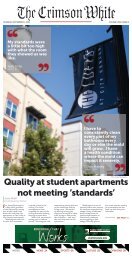Nineteen Fifty-Six Vol.4 Issue 2
Our latest magazine issue, Rooted, delves into the complexities surrounding the black family and the stigmas that often accompany conversations about it. From generational trauma to stereotypes perpetuated by the media, we examine the challenges faced by black families and the resilience and strength that bind them together. However, Rooted also celebrates the beauty and richness of black family life and culture, showcasing the love, unity, and traditions that make these families truly unique. Join us as we explore the multifaceted narratives of the black family and honor their history and heritage.
Our latest magazine issue, Rooted, delves into the complexities surrounding the black family and the stigmas that often accompany conversations about it. From generational trauma to stereotypes perpetuated by the media, we examine the challenges faced by black families and the resilience and strength that bind them together. However, Rooted also celebrates the beauty and richness of black family life and culture, showcasing the love, unity, and traditions that make these families truly unique. Join us as we explore the multifaceted narratives of the black family and honor their history and heritage.
Create successful ePaper yourself
Turn your PDF publications into a flip-book with our unique Google optimized e-Paper software.
Health is a topic that many Black families find hard to talk about. To keep the Black family strong and together,<br />
the Black community must make more strides in having open dialogues about health, mental and physical.<br />
PHYSICAL<br />
Healthcare is often dubious for Black patients due to both<br />
a lack of access to healthcare and a lack of awareness of<br />
physical health issues. With no reliable place to go, Black<br />
people are forced to suffer in silence.<br />
Black people have a higher risk for COVID-19, heart<br />
diseases, stroke, cancer, asthma, influenza and pneumonia,<br />
diabetes, HIV/AIDS and homicide, according to the U.S.<br />
Department of Health and Human Services’ Office of<br />
Minority Health.<br />
“One possible contributing factor: The Centers for Disease<br />
Control and Prevention (CDC) says African Americans are<br />
more likely to die at early ages for all causes, as young<br />
African Americans are living with diseases that are<br />
typically more common at older ages for other races,”<br />
wrote Pfizer in an article.<br />
While these statistics point out a need for health<br />
awareness, discussions of health within the Black<br />
community are still lacking.<br />
One major factor that bars Black people from seeking<br />
medical help is the price. Many cannot afford insurance<br />
and must pay out-of-pocket. In addition, society has<br />
created an environment that shames Black people,<br />
especially Black men, for vocalizing their pain. The urge<br />
to present as strong overpowers their need for medical<br />
attention.<br />
A doctor’s office can elicit anxiety for anyone, but many<br />
members of the Black community harbor a mistrust in<br />
medical professionals. At face value, it is just paranoia,<br />
but it is the effects of generations of medical trauma.<br />
The Henrietta Lacks story, the Tuskegee experiment<br />
and the forced sterilization of Black women through<br />
the eugenics movement are just a few cases in which<br />
healthcare providers actively abused and mistreated<br />
Black patients. This, coupled with present-day cases of<br />
doctors dismissing Black patients’ pain and misdiagnoses,<br />
the Black community is validated in their fears.<br />
“A lot of people in the Black community feel as if the health<br />
care system doesn’t have their best interest at heart,” said<br />
Sydney Lowe, a sophomore majoring in nursing. “A lot of<br />
Black people, Black women specifically, go unheard and<br />
kind of overlooked in the healthcare setting.”<br />
Lowe said the issue of medical mistrust is one of the<br />
reasons she decided to become a nurse, so she could “be<br />
more of an advocate for Black and brown bodies.”<br />
Studies have shown that Black women have the highest<br />
maternal mortality rates in the United States. Black<br />
mothers’ pains go ignored and untreated on the operating<br />
table.<br />
Serena Williams, a world-renowned athlete, is one<br />
Black woman who almost died while giving birth to her<br />
daughter, Olympia.<br />
In an essay written for Elle magazine, Williams recounts<br />
how she couldn’t feel or move her legs and back and was<br />
experiencing extreme pain. The physicians with her<br />
ignored her cries.<br />
“Being heard and appropriately treated was the difference<br />
between life and death for me,” she wrote. “I know those<br />
statistics would be different if the medical establishment<br />
listened to every Black woman’s experience.”<br />
JoAnn Oliver, a professor at the Capstone College of<br />
Nursing, has worked in the medical field for over 20<br />
years and is familiar with the negligence Black women<br />
experience in medical care.<br />
“It’s a big issue, almost an epidemic related to Black<br />
women,” Oliver said. “Many times, as Blacks, we may not<br />
present with the same type of symptoms, or we may not<br />
outwardly present, we may be in pain, but we’re not, you<br />
know, not screaming to the top of our lungs.”<br />
A common myth within the healthcare industry is<br />
that Black people can tolerate pain more than other<br />
ethnicities. A 2016 study suggested half of white medical<br />
trainees believe that Black people have thicker skin and<br />
less sensitive nerve endings, which leads to better pain<br />
tolerance. Pain assessment is challenged by the subjective<br />
nature of pain and the cultural and social influences on<br />
37


